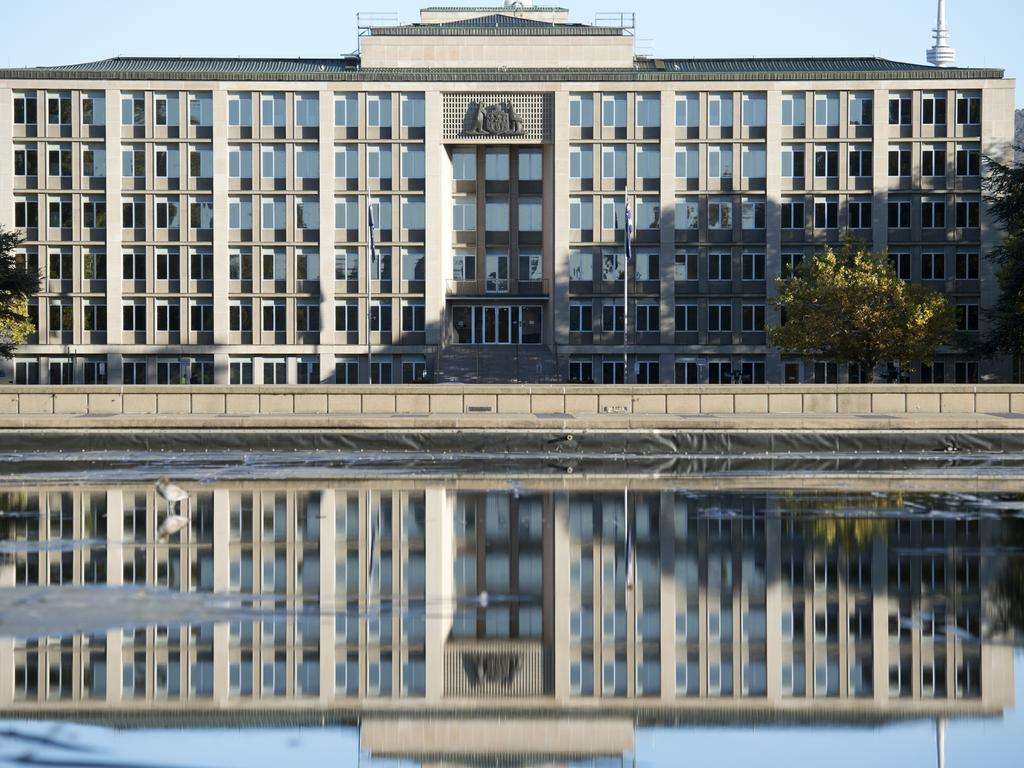Snap investment drought or nation will suffer, says Business Council of Australia chief executive Jennifer Westacott
Business investment has dwindled to its weakest since the 1990s recession, with the Business Council of Australia urging the Albanese government to rekindle corporate spending.

Business investment has dwindled to its weakest since the 1990s recession, with the Business Council of Australia urging the Albanese government to do more to rekindle corporate spending or risk hamstringing the nation’s ambitious goals to digitise the economy and transition to a low-emissions future.
The BCA says the investment challenge facing the nation is the biggest in the generation, and that urgent action is needed to make sure Australia is as competitive as possible in the global fight for capital.
Days after the Productivity Commission delivered its five-yearly blueprint for future prosperity, BCA chief executive Jennifer Westacott said “Australia is in the grip of an investment drought”.
Ahead of a May budget that Treasurer Jim Chalmers has said would focus on fiscal restraint, some limited cost-of-living relief and targeted policies aimed at easing supply chain pressures, the business lobby group has renewed its call for a broadbased and permanent investment allowance.
A 20 per cent allowance would allow a company to immediately write off a fifth of its spending on a productive asset, plus the normal depreciation over the following five years – ultimately providing a tax deduction of 120 per cent.
Such a measure would lift GDP by about $17bn over the next decade and increase the average worker’s full-time wage by $750, according to the BCA analysis. Over the shorter term, the BCA also urged the government to extend the instant expensing of investment – which is limited to firms with total revenue of under $5bn – beyond the June expiry, and also policies aimed at boosting technology investment and skills and training out to mid-2025.
At just over 11 per cent of GDP, new private investment relative to the economy overall is barely higher than the record low reached in the immediate aftermath of the early 1990s recession.
“Business investment matters because it fuels innovation and expansion. It’s what gives businesses the capacity to do new things, pay workers more and prepare for the future,” Ms Westacott said.
“Right now, we’re staring down the barrel at huge economic change and opportunities, but we don’t have the crucial tool we’ll need to face them – booming business investment. As we face the challenges of decarbonisation, of taking advantage of huge opportunities of the AUKUS deal, and preparing for the future, we simply can’t afford to do nothing.”
Investment peaked at 18 per cent of national output during the mining investment boom of the 2010s but has been in sharp retreat ever since.
While the share of spending on “intangible” assets such as software, computer databases and research and development has recorded a dramatic increase over the past six decades – from 3 per cent of total business investment to 18 per cent – Australia remained among the lowest-ranking countries in the OECD, according to the BCA’s research.
KPMG chief economist Brendan Rynne backed the BCA’s call to action, saying the economy had suffered a “capital shallowing” in recent years as new investment had not kept up with depreciation.
Dr Rynne said the BCA’s call for an investment allowance was particularly relevant given Australia’s relatively high corporate tax rate. “That’s really important in the context of the Productivity Commission report, as capital deepening is critical for productivity,” he said.
Dr Rynne said the massive spending in the resources sector has masked an even more dire lack of investment among non-mining companies.
“The work we’ve done shows that hi-tech capital investment is very important when you’re trying to link productivity growth and real wage growth,” he said.
Dr Rynne said the government’s proposed $15bn National Reconstruction Fund – which will direct taxpayer money to co-invest with firms across key areas such as green technology, medical science, transport and defence – would have a “positive” impact on investment. “It is positive, but what you are wanting is for the private sector to take the initiative and undertake the investment because, first, they can see the market opportunities on the capital they are investing,” he said.
“In terms of government support, what they are proposing (with the NRF) makes absolute sense, in particular in the areas they are looking. It’s those industries and sectors that have a bias towards hi-tech and digital and new economy outcomes.”







To join the conversation, please log in. Don't have an account? Register
Join the conversation, you are commenting as Logout